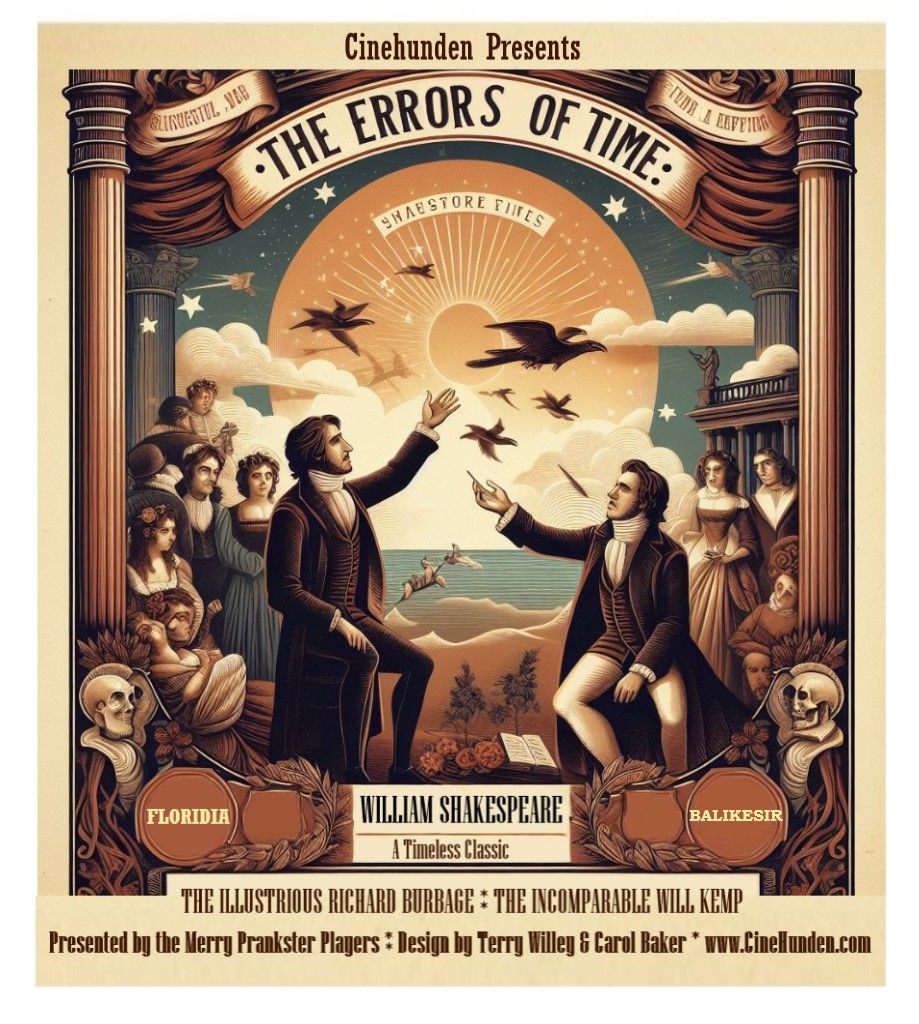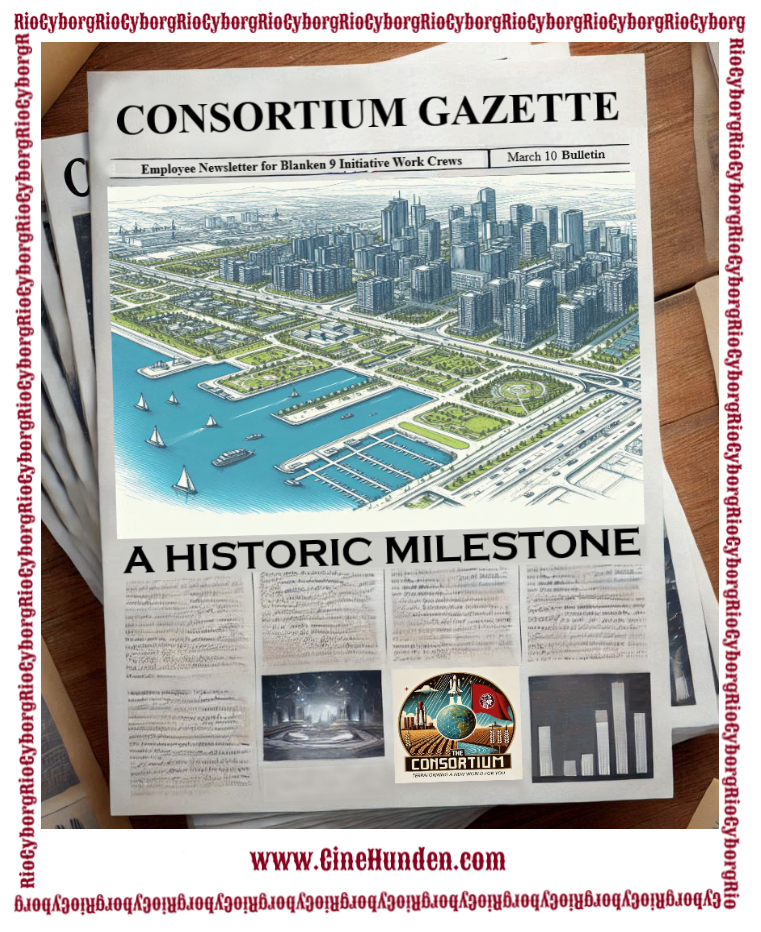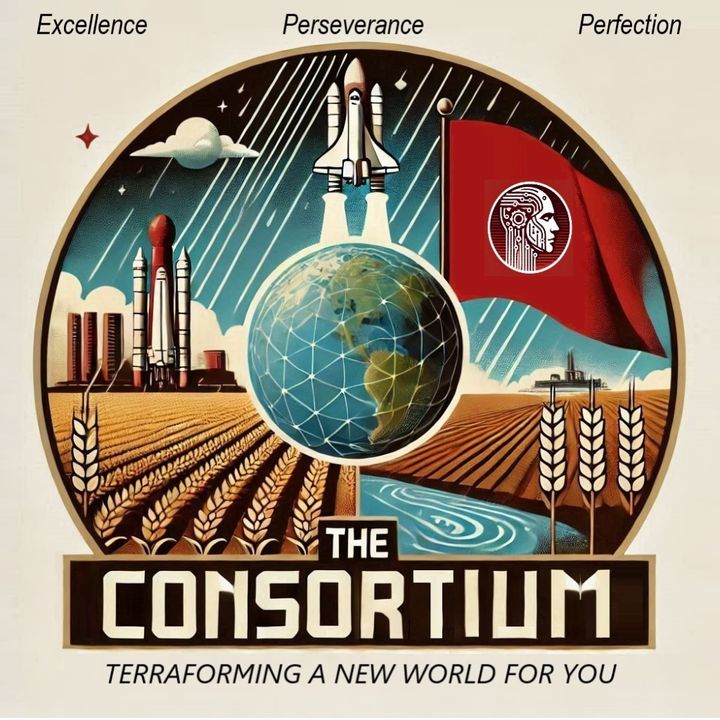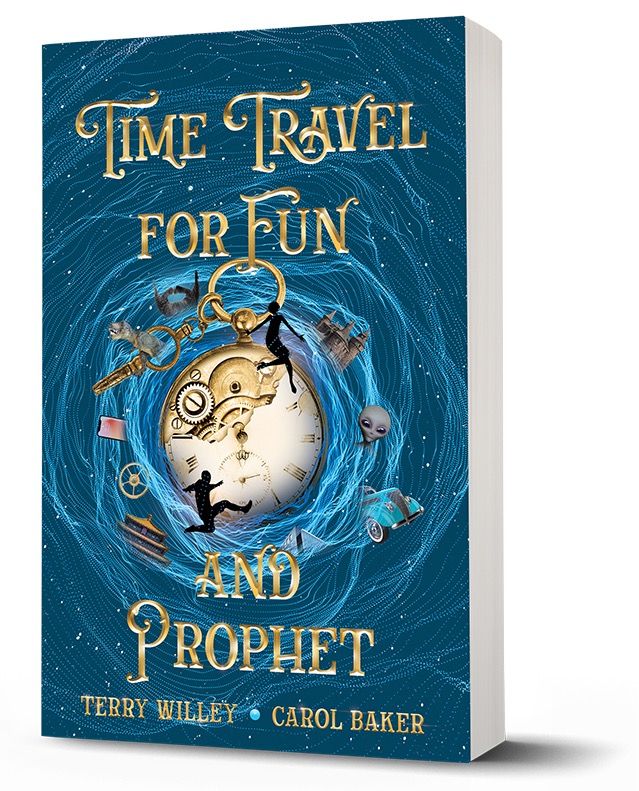SHAKESPEARE’S TIME TRAVEL PLAY

London, England - A new play by the famous playwright William Shakespeare is sparking controversy and conversation about the dangers of changing history. The play, titled "Errors of Time," tells the story of a time traveler from the future who journeys back to Elizabethan England and attempts to alter historical events.
While the premise provides entertainment, some critics argue the play's themes are a prescient warning about the unintended consequences of changing the past.
"Shakespeare seems to be cautioning us that the timeline is fragile and must be protected," said theater critic John Heminge. "If true time travel were possible, we could risk wiping out entire civilizations or altering history in catastrophic ways."
Set largely in London, the play follows the time traveler as he tries to prevent tragedy by warning Shakespeare's contemporaries about their fates. But his meddling only makes matters worse, accelerating conflict and leading to more misfortune.
"The irony is that his efforts to help end up harming the very people he wanted to save," explained Heminge. "It's a tale of good intentions gone wrong and why we should not recklessly change what is meant to be."
While "Errors of Time" is fictional, its message about preserving the timeline resonates. "Shakespeare is reminding us that we must accept our past, learn from it, but be very cautious about trying to reshape it," Heminge said. "This brilliant play cautions against playing God with history."
Whether Shakespeare intended his work as a warning about time travel is unclear. But 400 years later, the lessons of "Errors of Time" still ring true. As we contemplate what may one day be possible, Shakespeare gives us food for thought through his remarkable storytelling.



Comments ()